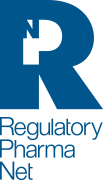The landscape of Product Lifecycle Management (PLM) is undergoing a significant transformation, especially in the realm of Regulatory Procedure Management (RPM). This evolution is primarily driven by the transition towards the Innovative Regulatory Information System (IRIS), a move that promises to streamline processes, enhance transparency, and foster a more efficient regulatory environment.
Regulatory Procedure Management (RPM) is a critical component of Product Lifecycle Management (PLM) in the pharmaceutical and medical device sectors. RPM encompasses the strategies, processes, and documentation required to navigate the complex regulatory landscape effectively. As regulatory requirements become more stringent and global markets more interconnected, the need for an integrated and innovative approach to RPM has never been more apparent.
Challenges and Opportunities of the IRIS Transition:
The transition to IRIS represents a pivotal shift in RPM, offering a range of benefits from streamlined submission processes to real-time tracking of regulatory status. This digital leap forward is set to revolutionize the way companies manage their regulatory procedures throughout the product lifecycle. The main benefits of the transition will be:
- Enhanced Efficiency: IRIS promises to reduce the complexity and time required for regulatory submissions through standardized procedures and digital workflows.
- Increased Transparency: With features like real-time status updates, stakeholders can now have greater visibility into the regulatory process, enhancing accountability and decision-making.
- Improved Compliance: The system’s structured and integrated approach facilitates better adherence to changing regulatory requirements, minimizing the risk of non-compliance.
- Global Harmonization: IRIS supports international standards, making it easier for companies to manage regulatory procedures across different regions.
Despite the clear benefits, the transition to IRIS is not without its challenges. Companies must navigate the technical and organizational hurdles associated with adopting a new digital system. This includes training staff, updating internal processes, and ensuring data integrity during the migration. Moreover, as with any significant change, there may be resistance within organizations, underscoring the need for clear communication and change management strategies.
The advancement in Regulatory Procedure Management towards the Innovative Regulatory Information System (IRIS) signifies a major step forward in the realm of Product Lifecycle Management.
This journey is not just about regulatory compliance but also represents a strategic opportunity to set a new standard of excellence within the industry.
Regulatory Pharma Net is closely monitoring and experiencing the evolving PLM landscape in medicinal products and medical devices and can support companies, both strategically and operationally, to adapt to the ongoing transition, overcoming the challenges to fully benefit from IRIS.




